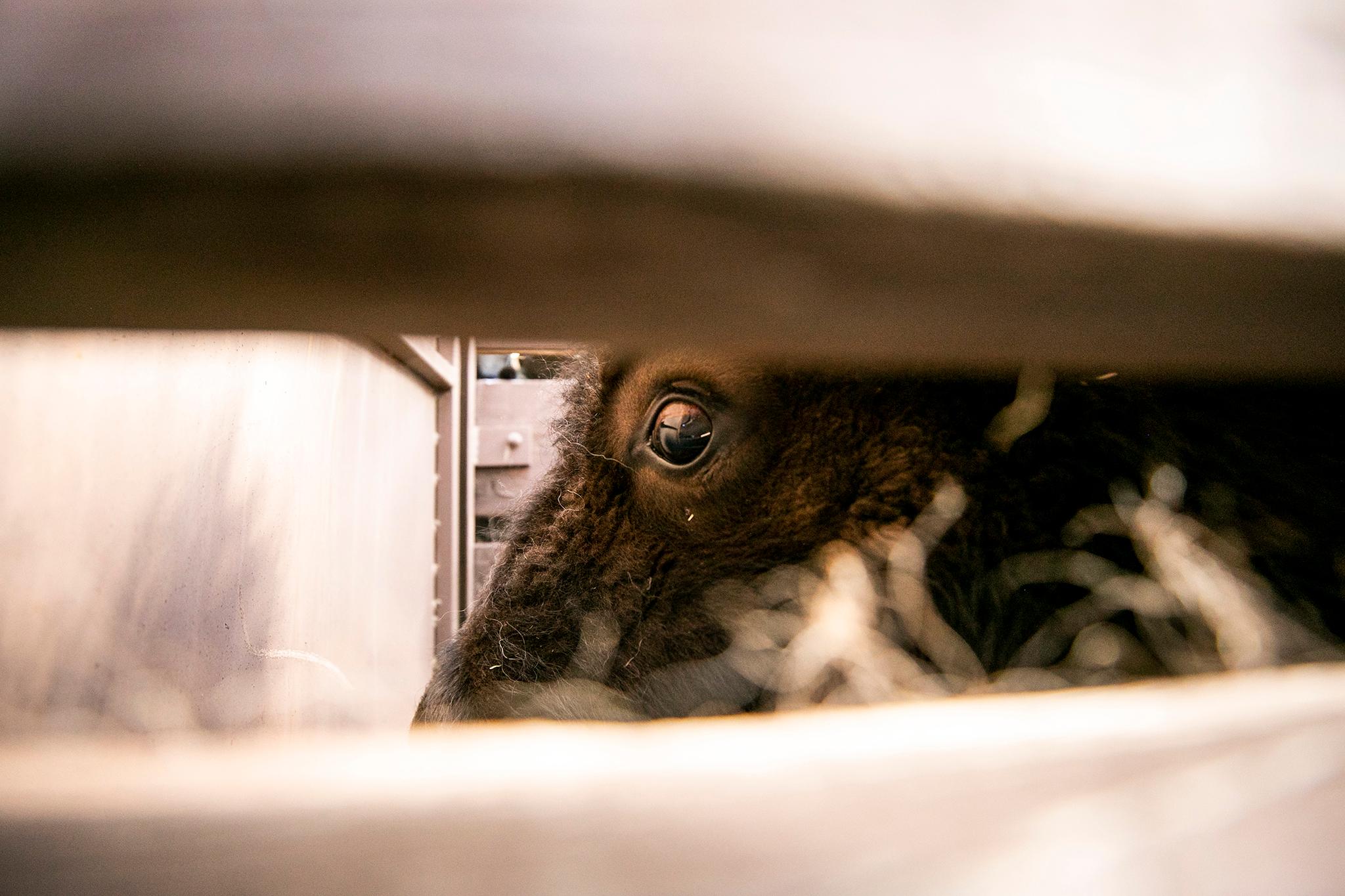The brown fence shook, knocking back some members of the media, as thirty bison were rushed into a white trailer headed toward Native lands. One bison in particular, confused about its destination, got caught between two steel gates before eventually finding its way back into the trailer safely.
The City of Denver and the Denver Parks and Recreation Department transferred 30 bison to the Northern Arapaho and Eastern Shoshone tribes in an effort to return the buffalo back to their lands.
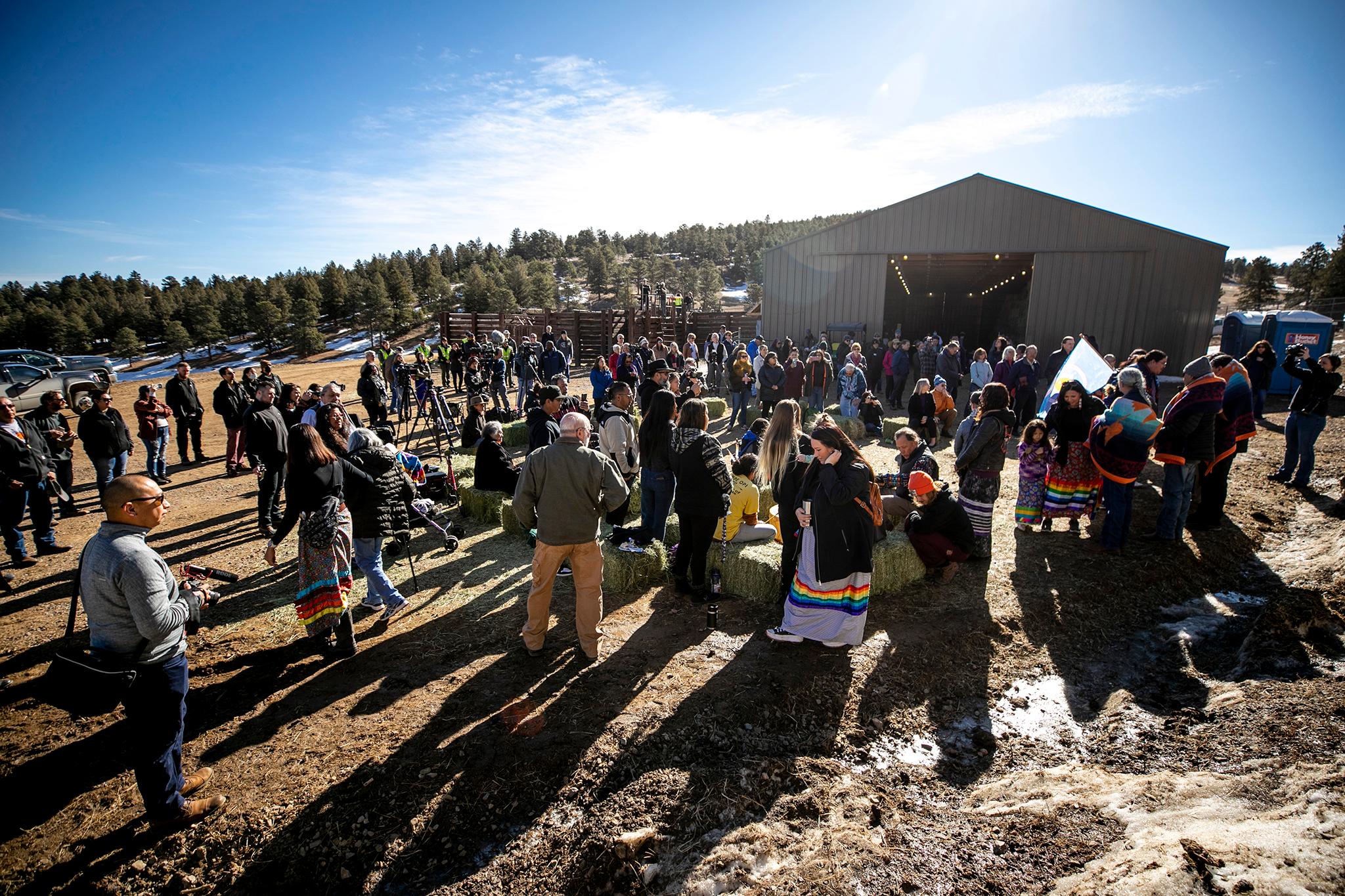
"We have approximately 60 bison in two herds, one at Genesee Park and one at Daniels Park. Every year, when they have babies, we get approximately 30 to 35 yearlings," said Scott Gilmore, Deputy Executive Director of Denver Parks and Recreation.
Things changed when William Tall Bull of the Tall Bull Memorial Council developed a relationship with Gilmore and suggested negotiating a bison transfer.
The first occurred in April 2021 after Tall Bull and Gilmore proposed the idea to the City County, which approved an ordinance to donate American Bison from the city to American Indian Tribes.
"Over the years we've been building up that relationship," Tall Bull said. "The way it should have been."
This was just the third of what they hope to be many transfers. The current agreement runs until 2030. Historically, the city of Denver would auction bison to the highest bidders.
"As a city, I don't know of any other city that can do this. Who owns bison?" Gilmore said. "You can't do something you don't have. The federal government has been trying to do this for a long time. But as a city we have a lot more flexibility."
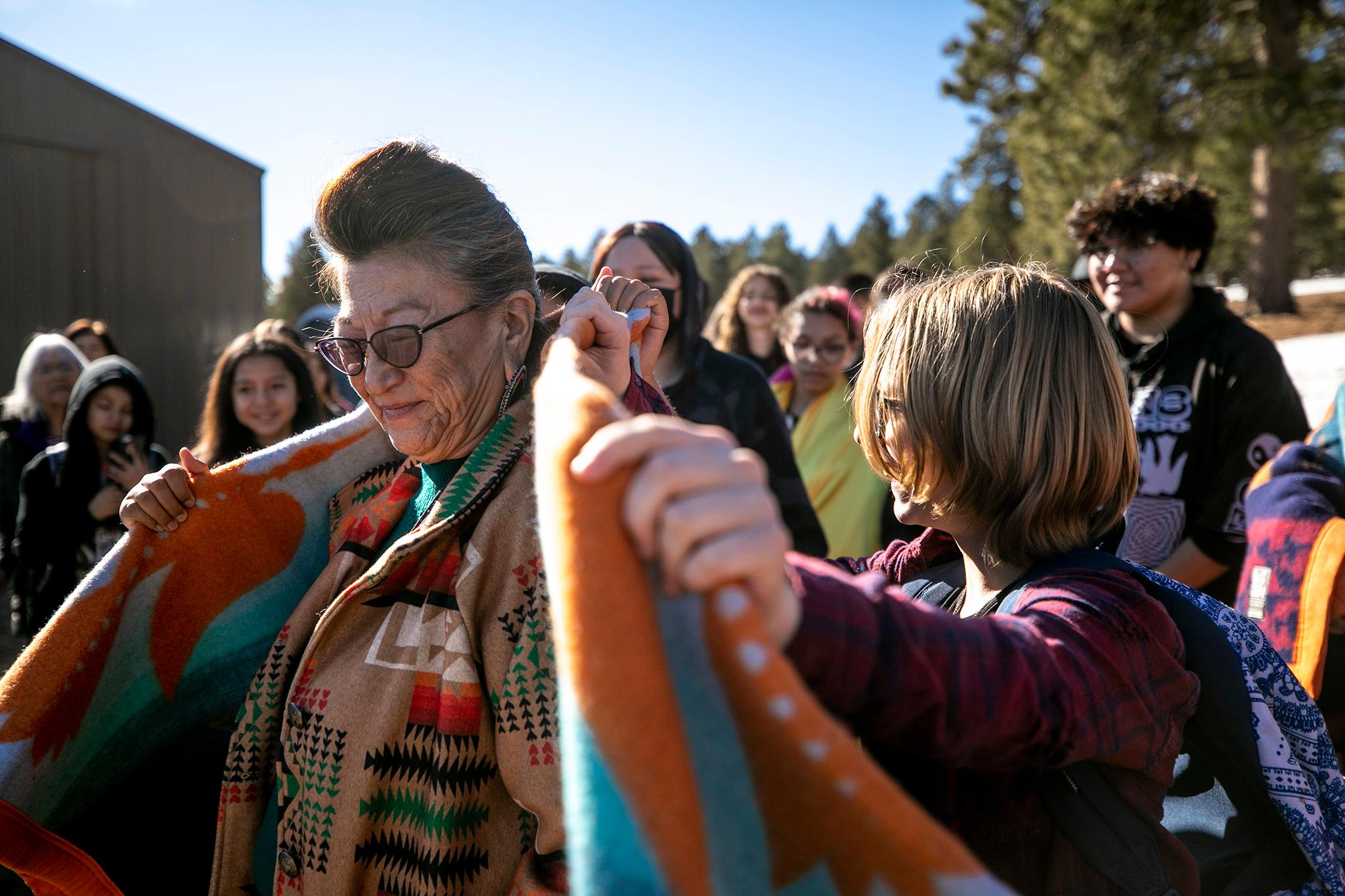
"I think this is a great step because to have our bison relatives back, it's a happy day," said Joshua Emerson, co-chair of the Denver American Indian Commission. "There's a lot more work left to do, but it is a cool step forward."
He said the event symbolizes the reunification of bison relatives to the Indigenous communities that have lived in close harmony with the herds for generations.
"The Lakota people are a buffalo nation. We consider them our four-legged relatives," said Danielle SeeWalker, a Native American artist and a Denver American Indian Commission member. "They've always cared and provided for our people, our ancestors and our way of life. We followed the buffalo. Wherever they went is where we went."
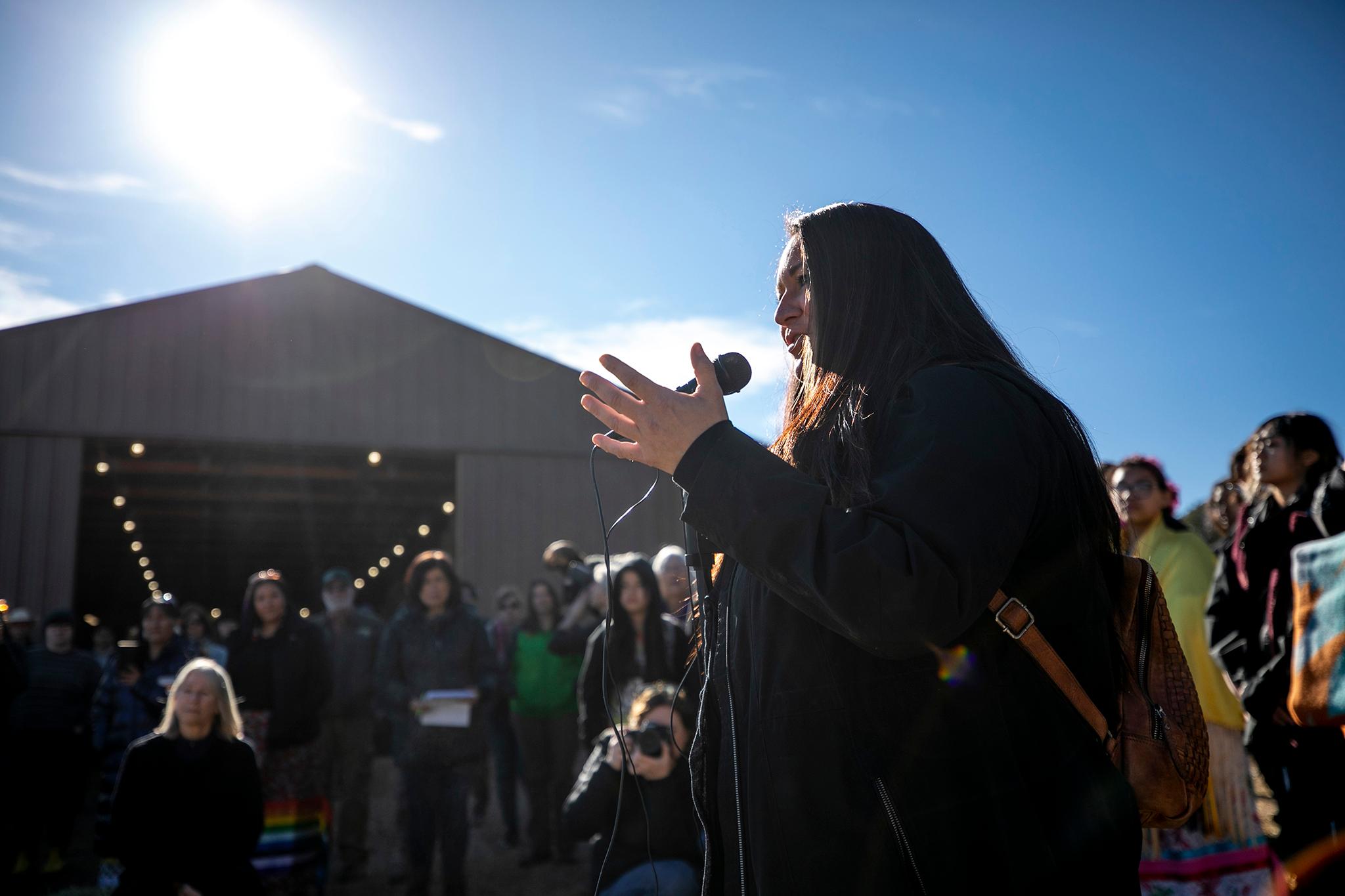
Jason Baldes, a board member of the InterTribal Buffalo Council and Tribal buffalo program manager for the National Wildlife Federation, will take some of the buffalo to Wyoming's Wind River Indian Reservation. He said, outside of getting trailers and fuel, the transfers north are seamless.
"Buffalo are matriarchal, and so we always try to get the young animals," Baldes said. "When we take these buffalo back to our herds, they will integrate very well because they're young and fit the herd's dynamics."
This year's transfer includes 17 bison to the Northern Arapaho Tribe, 12 to the Eastern Shoshone Tribe and one to the Tall Bull Memorial Council. Including this year's bison, the city has transferred a total of 85 buffalo to tribes in the area, according to Gilmore.
"It's great traditionally and culturally for them to return our four-legged relatives," Carla Respects Nothing, Denver American Indian Commission member, said. "And it means the most that we continue to keep moving forward and teach our younger generation that this is our way of life."
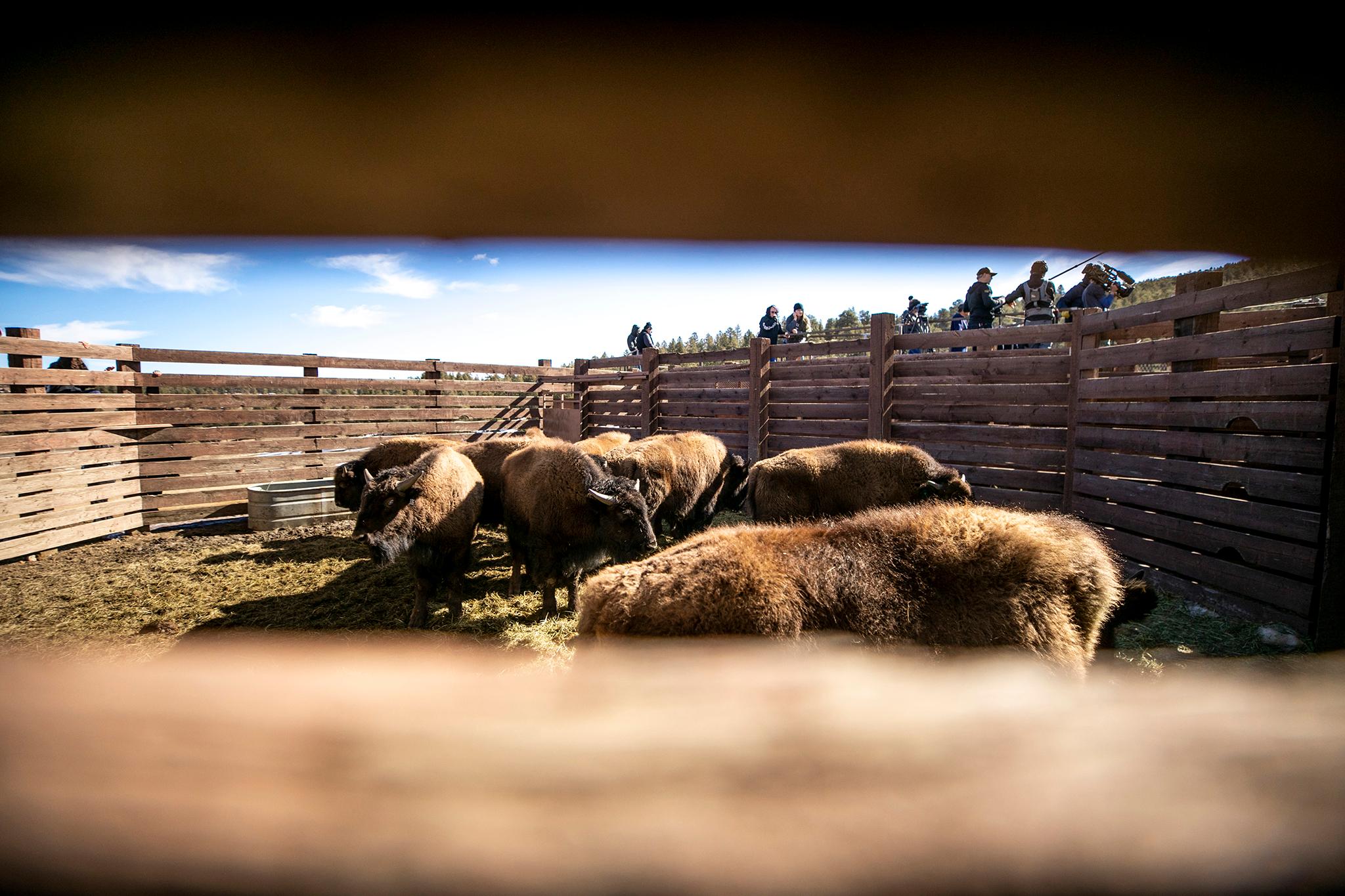
"We read land acknowledgements. Those are just words on a piece of paper," said Gilmore. "In this moment, we are returning the land. The buffalo are part of the land. This allows us to honor land acknowledgements with action, not just with words."

